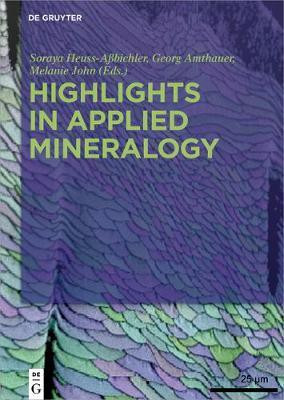Highlights in Applied Mineralogy(English, Hardcover, unknown)
Quick Overview
Product Price Comparison
What can we learn from nature? The study of the physical, chemical and structural properties of well-known minerals in the geo- and biosphere creates new opportunities for innovative applications in technology, environment or medicine. This book highlights today's research on outstanding minerals such as garnets used as components in all solid state batteries, delafossite formation during wastewater treatment, monazites for the immobilization of high level radioactive waste or hyroxylapatite as bioactive material for medical implant applications. Contents Part I: High-technology materials Lithium ion-conducting oxide garnets Olivine-type battery materials Natural and synthetic zeolites Microstructure analysis of chalcopyrite-type CuInSe2 and kesterite-type Cu2ZnSnSe4 absorber layers in thin film solar cells Surface-engineered silica via plasma polymer deposition Crystallographic symmetry analysis in NiTi shape memory alloys Part II: Environmental mineralogy Gold, silver, and copper in the geosphere and anthroposphere: can industrial wastewater act as an anthropogenic resource? Applied mineralogy for recovery from the accident of Fukushima Daiichi Nuclear Power Station Phosphates as safe containers for radionuclides Immobilization of high-level waste calcine (radwaste) in perovskites Titanate ceramics for high-level nuclear waste immobilization Part III: Biomineralization, biomimetics, and medical mineralogy Patterns of mineral organization in carbonate biological hard materials Sea urchin spines as role models for biological design and integrative structures Nacre: a biomineral, a natural biomaterial, and a source of bio-inspiration Hydroxylapatite coatings: applied mineralogy research in the bioceramics field A procedure to apply spectroscopic techniques in the investigation of silica-bearing industrial materials


